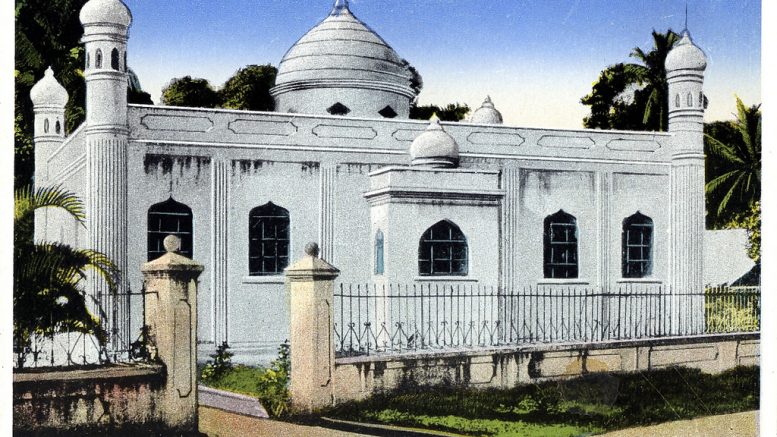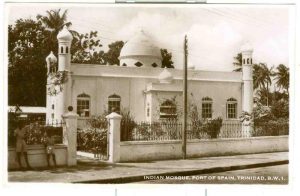Pages
- Home
- About Dr Kris Rampersad
- Kris' Earth Travels
- Courses Workshops & Seminars
- Books & Publishing
- Fiction, Stories & Scripts
- Videos & Productions
- Research & Readings
- Conference Papers
- Contact & Feedback
- Links, Partners & Associates
- Environment Gender & Culture Sensitive Knowledge Research Information Services
- Children's Stories by Dr Kris Rampersad
- Demokrissy
Monday, June 28, 2010
Wednesday, June 23, 2010
Women still face political glass ceiling - in all parties
Grow Safeguard Preserve Create A MultiMedia Legacy
With rapidly changing technologies in media, many of our knowledge resources are fast disappearing or becoming inaccessible. We are in the process of digitising our archives representing more than 30 years of contemporary Caribbean development linked to more than 10,000 years of regional pre and post colonial history and heritage. Make contact.
To support, sponsor, collaborate and partners with our digitisation efforts. Or to develop your own legacy initiatives, and safeguard, preserve, multimedia museum, galleries, archives, make contact.
As Cool as Gokool Haji Gokool Meah
Haji Gokool Meah

How many of us would have known that the expression “cool as Gokool” referred to Haji Gokool Meah (1847-1939) who came on an indenture ship when he was just six years old and grew to be businessman, cocoa proprietor and cinema magnate, builder of the Globe and Empire cinemas in the 1930’s? Gokool drank his cup of dhal every day, and in the face of racial prejudice conducted his business with an icy calm that became proverbial, hence “cool as Gokool”. [Extracted from Caribbean History Archives]
BIOGRAPHICAL SKETCH
Haji Gokool Meah (1847–1939) was an industrialist and philanthropist. He was born in Kashmir, in what was then British India. He was originally named Modhoo. His father died shortly before his birth and his mother remarried.
As a small child, his family left Kashmir and ended up in Calcutta where in 1852 they signed up as indentured labourers bound for the sugar cane fields of Trinidad. On January 25, 1853 they arrived in Trinidad aboard the Benares. They were indentured at the Concord Estate in Pointe-à-Pierre. After three months, his mother died of malaria and his stepfather took little interest in him. He was informally adopted by a Hindu couple who gave him the name Gokool.

Haji Gokool Meah Mosque
Once he was old enough, Gokool secured his own indentureship contract with the Concord Estate. He renewed his contract once it expired, and then went out on his own. He purchased a donkey cart and made a living hauling sugar cane to the factory at Usine Sainte Madeline, then the second largest sugar refinery in the world. After a few years of this trade, he sold his cart and established a shop in Danglade Village on the road to San Fernando (now part of the Petrotrin oil refinery at Pointe-à-Pierre).
He married Rojan Boodhoo, a Muslim in 18781, and had 17 children, 11 of whom survived. From shopkeeping he moved on to cocoa cultivation, establishing one of the early cocoa plantations in the Diego Martin valley. From cocoa he moved on the real estate, becoming one of the major landlords in Port of Spain. He also established himself as a cinema magnate, establishing the Metro cinema in collaboration with MGM. He later split with them and renamed his cinema the Globe Cinema, eventually operating a string of five cinemas in Port of Spain and San Fernando.
In 1922 he performed the Haj (Muslim pilgrimage to Mecca). In his will, he established the Haji Gokool Meah Trust, a trust to continue the charitable works which had earned him the title Meah (benefactor). [Extracted from Wikipedia] In 1923 he joined Kazi Syed Abdul Aziz, Haji Ruknuddin Meah and Abdul Ghany to set up the TIA, and was a generous donor to their projects. When he died he left $1million in a tust fund to his son Noor to administer to the poor. Noor passed it on to an institution which established the Haji Gokool Meah Trust Fund in 1967 for the poor, needy and education in general, then valued at $1.93 million.1
The Cinema
On Thursday February 2nd 1911, Trinidadians got their first taste of the new-fangled technology of moving pictures. The London Electric Theatre was constructed at the corner of Baden Powell St. and French St. in Woodbrook. Built by Marcus and Reginal Davis, the opening was eagerly anticipated as crowds braved a rainy evening to see the first show, entitled “The World Before Your Eyes” . The matinée was a series of stills, rapidly flipped before a projector to give the illusion of motion. The rates charged for admission were for the gender and age classes, and not for house or balcony as with later cinemas.
Another pioneer in the local cinema industry was Gokool Meah. Born in 1848 in Kashmir, he came as a child to Trinidad, and was subsequently orphaned with the deaths of his parents, Caulloo and Puddoo. Adopted by a childless Hindu couple, who did not mind the waif’s Islamic heritage, he grew up in labour on Concord Estate, near Pointe-a-Pierre, then owned by Dr. J.B Phillippe, a prominent coloured medical man and well-known public figure.
By 1870 he was driving a mule cart, and later bought one of his own with which he did a thriving trade, carting canes to the refinery at Usine Ste. Madeline. His career as a carter abruptly ended when the mule kicked him, and using his savings, Gokool opened a small shop near the estate.
In 1878 he married a young Punjabi woman, Rojan, who gave him 11 surviving children. The shop prospered and in 1892, Gokool was able to purchase Diamond, Greenhill and River Estates, comprising almost the whole Diego Martin valley, which he developed as cocoa plantations. He moved there with his family and lived in a large wooden house. His children were educated in the local R.C School, with the boys going on to prestige secondary schools in POS.
By 1918, Gokool was buying up properties in POS which were going cheap in the post WWI recession. Although known as a hard commercial man, he was a charitable, pious Muslim, who fed children at his home daily and gave a piece of land to be used as an Indian cemetery in Diego Martin.
In 1922 he made a pilgrimage to Mecca with his son Noor, and became known as Haji Gokool Meah. In 1927 he built a Masjid in St. James which bears his name. In 1933, Gokool dived feet first into the cinema business, where fellow Indians, Timothy Roodal and Sarran Teelucksingh had already made a fortune. He was particularly convinced when the first movie with sound, a ‘talkie’ was shown in 1930. Gokool, supported by his son Noor (business manager of the vast empire his father owned and a QRC grad) forged an alliance with the American film producer, Metro Goldwyn Mayer, MGM. The contract was so planned that Gokool could only show films produced by MGM.
In 1933 , he constructed at the corner of St. Vincent and Park Sts. the Metro Cinema. It opened on March 19th 1933 to huge fanfare and for good reason. The ornate classical building could seat over 1,000 patrons in balcony and pit, and cost over $80,000 to construct. By comparison, almost the whole of modern-day Aranguez was for sale at the time for $22,000.00 The Globe was also the first building in Trinidad to be air-conditioned, and the largest cinema in the Caribbean. It also had a stage for live theatrical performances.
The Cinema – contributed by
1. Finding a Place by Kris Rampersad
2. http://www.naturetrektt.com/Trekking/25ThingsNotToMissAtAll/StJames/tabid/513/Default.aspx
Featured in Finding A Place. Help Us digitise
Grow Safeguard Preserve Create A MultiMedia Legacy
Featured in Finding A Place. Help Us digitise
Grow Safeguard Preserve Create A MultiMedia Legacy
With rapidly changing technologies in media, many of our knowledge resources are fast disappearing or becoming inaccessible. We are in the process of digitising our archives representing more than 30 years of contemporary Caribbean development linked to more than 10,000 years of regional pre and post colonial history and heritage. Make contact.
To support, sponsor, collaborate and partners with our digitisation efforts. Or to develop your own legacy initiatives, and safeguard, preserve, multimedia museum, galleries, archives, make contact.
Haji Gokool Meah (1847 - 1939) in Caribbean Muslims
Thursday, June 17, 2010
Wednesday, June 16, 2010
It's 'business unusual'... Triple whammy to hit energy sector | On the Frontlines of Climate Change
Triple whammy to hit energy sector
a multistakeholder multimedia multicultural sustainable development educator consultant and facilitator.
Featured Post
Confronting Colonial Mindset Happy Global Girls In ICT Day With BBC Gone Who Goin Tek Over Town
With escalating evidence of the persistent colonial mindset inhibiting the development agenda introducing a new Demokrissy Series to confron...


